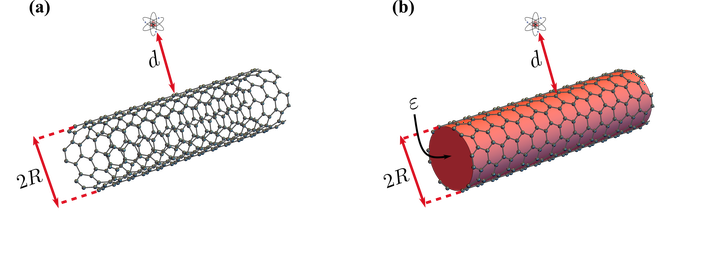 Image taken from paper
Image taken from paper
Abstract
We investigate the two-plasmon spontaneous decay of a quantum emitter near single-walled carbon nanotubes (SWCNTs) and graphene-coated wires (GCWs). We demonstrate efficient, enhanced generation of two-plasmon entangled states in SWCNTs due to the strong coupling between tunable guided plasmons and the quantum emitter. We predict two-plasmon emission rates more than twelve orders of magnitude higher than in free space, with average lifetimes of a few dozen nanoseconds. Given their low dimensionality, these systems could be more efficient for generating and detecting entangled plasmons in comparison to extended graphene. Indeed, we achieve a tunable spectrum of emission in GCWs, where sharp resonances occur precisely at the plasmons' minimum excitation frequencies. We show that by changing the material properties of the GCW's dielectric core, one could tailor the dominant modes and frequencies of the emitted entangled plasmons while keeping the decay rate ten orders of magnitude higher than in free space. By unveiling the unique properties of two-plasmon spontaneous emission processes in the presence of low-dimensional carbon-based nanomaterials, our findings set the basis for a novel material platform with applications to on-chip quantum information technologies.